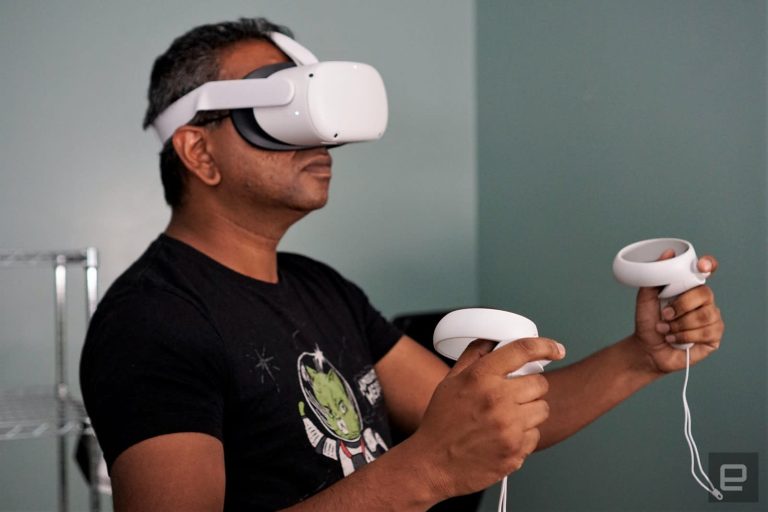The gaming industry has come a long way since its humble beginnings. From consoles and PCs to virtual reality (VR), technology has enabled us to immerse ourselves in new, interactive worlds.
Two of the most promising technologies that are transforming the gaming industry today are virtual reality (VR) and artificial intelligence (AI). Virtual Reality (VR) has been around for some time, but it is only in recent years that it has become more accessible and affordable for consumers.
VR offers gamers the ability to enter fully immersive virtual environments and interact with them in a way that was previously impossible. This has opened up new avenues for game developers to create experiences that are not only more engaging, but also more realistic and emotionally resonant.
One of the key advantages of VR technology is its ability to provide a sense of presence. This is achieved through the use of advanced tracking and display technologies that create a seamless virtual environment that mimics the real world.
In a VR game, players can look around and interact with objects and characters in a way that feels natural. This has led to the creation of games that are not only visually stunning, but also emotionally powerful. From first-person shooters to sports simulations, every genre is set to benefit from these exciting new developments.

AI and the Gaming Experience
Artificial Intelligence (AI) and gaming have been intertwined since the inception of video games. From simple computer opponents to complex virtual worlds, AI has played a vital role in creating exciting gaming experiences.
One of the most significant impacts of AI on gaming is the creation of more intelligent and dynamic non-player characters (NPCs). This means that NPCs can now react to player actions more realistically and create a more immersive experience for gamers.
Also, AI algorithms can also adapt to gamer behavior, providing personalized challenges based on individual gameplay style. These innovations make games more engaging, challenging and ultimately enjoyable.
Another area where AI is set to transform gaming is with the development of procedurally generated content. This refers to game elements such as levels, maps or missions being created by an algorithm rather than humans.
The gaming industry is constantly evolving, and the emergence of Virtual Reality (VR) and Artificial Intelligence (AI) is transforming the way we play games. As these technologies become more accessible to consumers, we can expect to see even more incredible innovations in the years ahead. It’s an exciting time to be a gamer, and we can’t wait to see what the industry has in store for us next!
Self-Gaming and AI
Self-gaming refers to a type of gaming where a person plays a video game or a board game by themselves, without the involvement of other players.
In video games, self-gaming can take the form of playing a single-player game or engaging in solo play modes within multiplayer games. This can include playing a game’s story mode, completing challenges or missions, or exploring open-world environments on your own.
In board games, self-gaming typically involves playing a game designed for solo play or adapting a multiplayer game for single-player use. Self-gaming can be a way for individuals to enjoy the gaming experience on their own terms, at their own pace, without the need for interaction or competition with others.
Self-gaming AI systems use machine learning algorithms to analyze player behavior and respond accordingly, making gameplay more dynamic. AI can be used to generate content for games, such as levels, maps, and quests, allowing for endless gameplay possibilities. While still in its early stages, self-gaming AI has the potential to revolutionize the gaming industry, offering gamers a more personalized experience.




